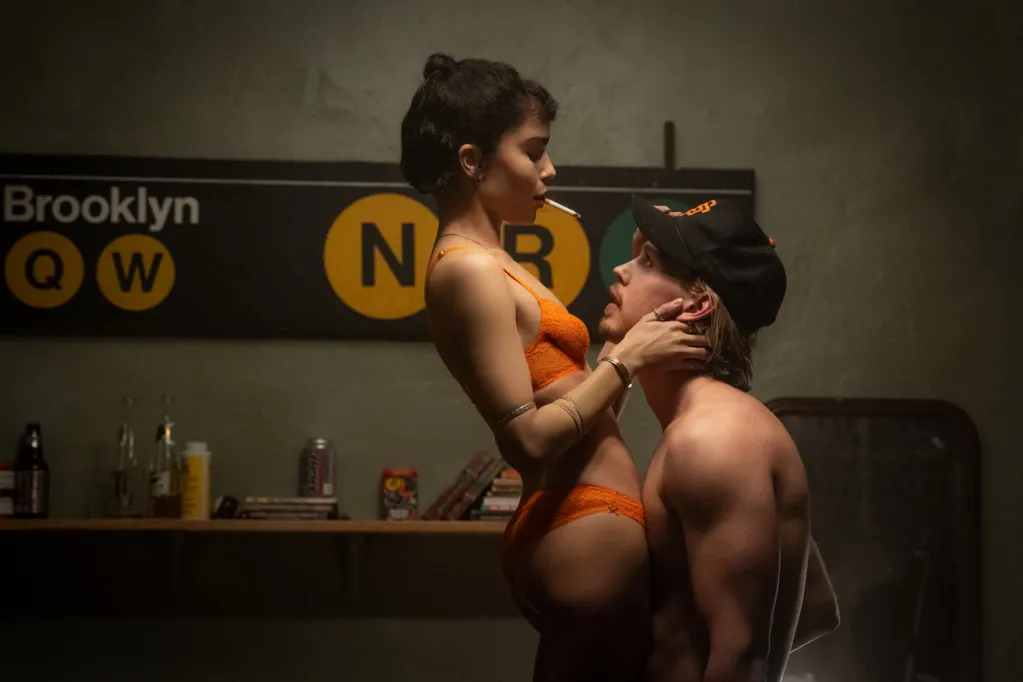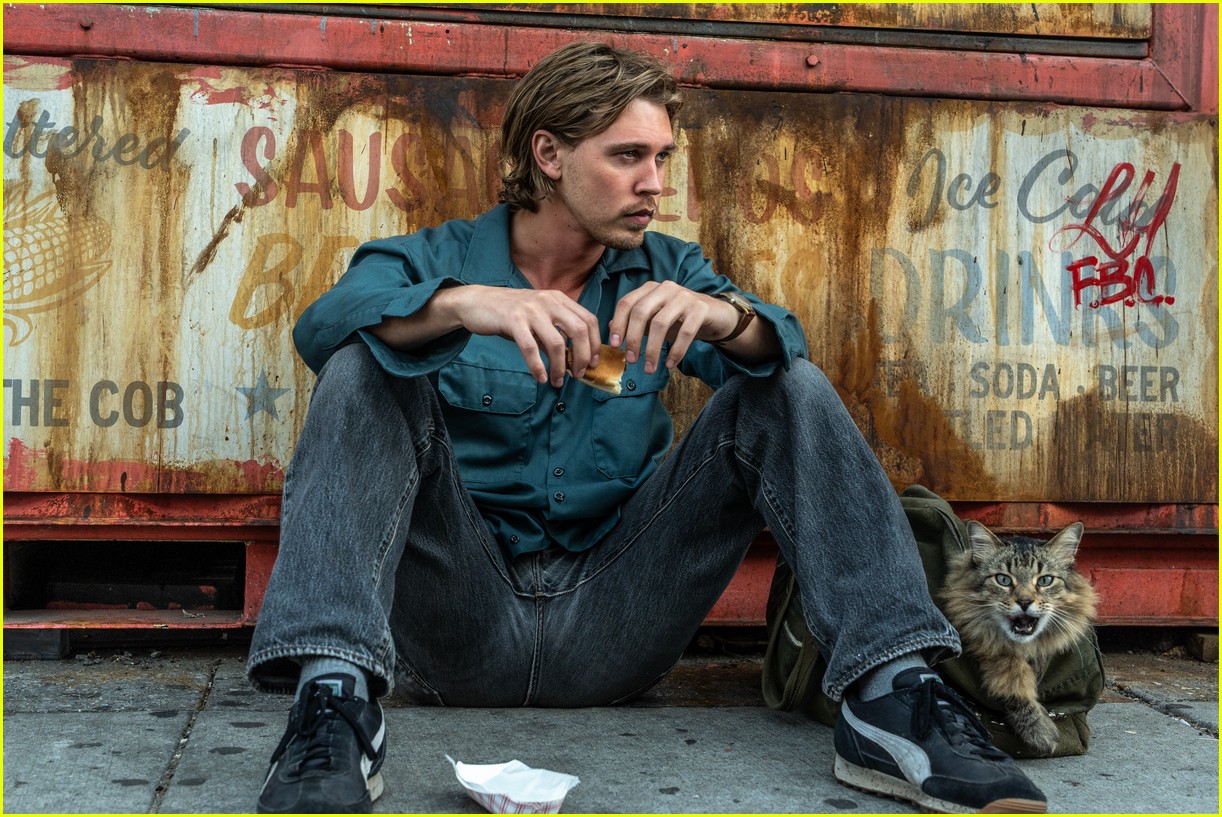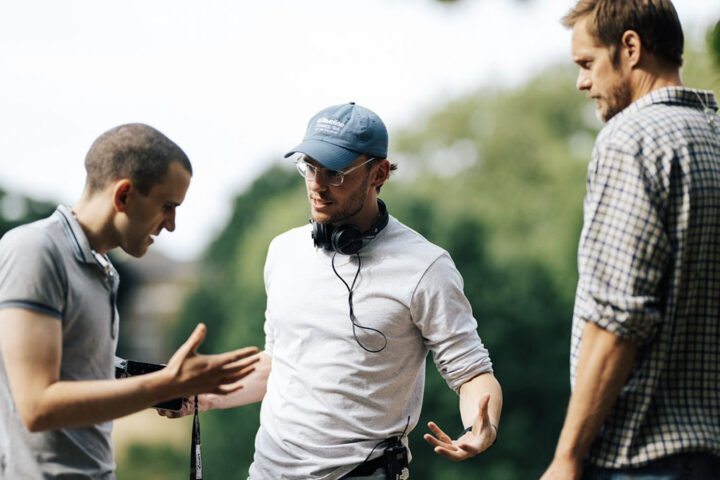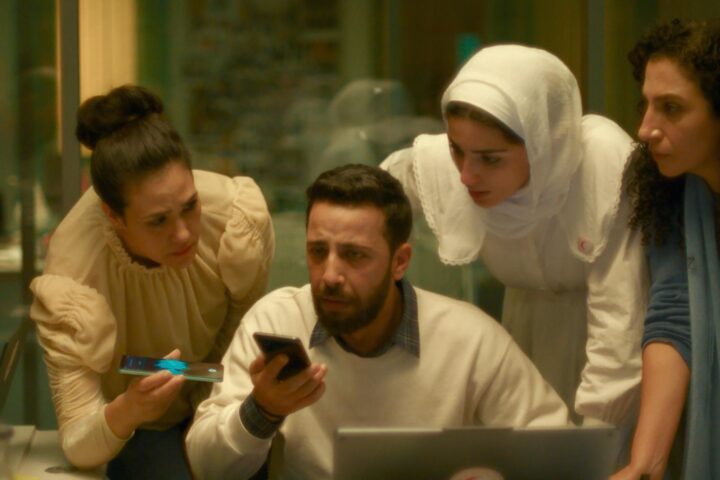It’s been awhile since Darren Aronofsky delivered a film as sharp as Caught Stealing, his most commercial-friendly outing yet and an unexpected late-summer surprise. Working from Charlie Huston’s screenplay of his own novel, Aronofsky shapes a gritty and unpredictable New York crime tale that moves with real snap, anchored by a terrific turn from Austin Butler, put through the bloody, funny paces of a mean streets caper. Somehow, this clever little movie has been dumped into an end of summer release and it deserves better; strong word of mouth may give it the boost it deserves.
Lately New York’s been having a moment on screen—first with Celine Song’s Materialists, a sharp-elbowed critique of modern dating in the big city, and soon to be seen in Bing Liu’s Preparation for the Next Life, in which a downtown love story is tested by immigration and PTSD. And in Caught Stealing, Aronofsky sets his picture wholly in lower Manhattan for a crime story by turns sexy, violent and fun as all get out.
A pumped up (and frequently unclothed) Butler plays a low-living downtown bartender and California transplant, a former high school baseball golden boy whose promising pro career was cut short by a car accident that left him with a battered knee and years of guilt. He ends up inadvertently caught in the crosshairs of some underworld mobsters hunting a boatload of hidden cash.
Hard-drinking Hank Thompson (Butler) has seen better days. At the start, he’s scraping by tending bar in a rough downtown joint, spending nights with his sharp, quick-witted paramedic girlfriend Yvonne (Zoe Kravitz). Early on, Butler and Kravitz have sexy chemistry in a brief, hot clinch—they’re perfectly paired. Trouble begins when Hank’s next-door neighbor in their grungy East Village walk-up runs into some dangerous types. Russ (Matt Smith), a mohawk-ed British punk, asks Hank to cat-sit (cue charming kitty) before vanishing, only to leave violent Russian mobsters at Hank’s door, believing he’s involved in Russ’ mysterious intrigue; they beat him so badly he loses a kidney.

That’s only the beginning of an After Hours-style spiral (Griffin Dunne even pops up as Hank’s grizzled boss). Haunted by the car crash that wrecked his future, Hank checks in daily with his mom back in California (wait for closing credits cameo)—both are die-hard Giants fans, always saying goobye with a cheerful “Go Giants!”—all while finding more and more people on his tail. Detective Roman (a superb Regina King) pushes him to come clean and stay alive, while a pair of deceptively mild-mannered Hasidic gangsters—played with deceptively low-key charm by Liev Schreiber and Vincent D’Onofrio—turn his world into even more of a freewheeling, frequently shocking odyssey. And those Brighton Beach Russian mobsters? They’re brutal, a darker echo of their bumbling Anora cousins.
At heart, Hank’s a decent guy: a good neighbor to Russ, trying to be a better boyfriend to Yvonne, who wants him to step up and take real responsibility. But he’s utterly unprepared for the nastiness knocking at his door. Like a Hitchcock hero, he’s the ordinary man in the wrong place at the wrong time, terrified not only for himself but for everyone he cares about. And the questions only pile up—what do these gangsters really want, why is he suddenly at the center of it all, and what’s the deal with the mysterious key buried in the cat litter?
All of this plays out on the streets of lower Manhattan, shot on grainy 35mm with such kinetic propulsion by frequent Aronofsky collaborator Matthew Libatique, who gives the film’s downtown environs, from the East Village to Coney Island to Brighton Beach and everywhere in betwteen—a grit, danger and raw urban sheen most effective.
Butler, in his best screen role since his 2022 Oscar-nominated turn in Elvis, unequivocally shows he has “it”—that genuine movie-star presence that’s all but vanished among today’s young male actors. He gives a lot to the role, layering Hank with real gravitas suggesting a good moral center in a character haunted by demons. At one point Yvonne warns him about facing his fears before they control him, and through Butler is constantly negotiating, in close-up, the sometimes catastrophic implications of his violent pursuers; he’s on the run for the entire running time but the key to the performance is watching Hank face down his traumas will stepping up to a dangerous level of one-upmanship with a criminal underworld far more equipped to battle.
The supporting cast is down the line perfect. Bad Bunny (credited under his real name, Benito Martinez Ocasio) holds his own as a menacing Puerto Rican gangland heavy, and Carol Kane pops up for a quick but effective cameo as “Bubbe,” grandmother to the Hasidic hitmen, ladling out matzah ball soup along with pearls of wisdom. But it’s Regina King who nearly steals it with swaggering role as a cop who’s always got another trick up her sleeve. King brings her trademark authority but also cuts loose—her mano-a-womano scenes with Butler, the pair clearly having a blast every time they share the screen, give the movie a real lift.
This is all so smartly directed and performed and an example of how artistry can elevate pulp fiction. In other hands—maybe Guy Ritchie’s brand of cocky mayhem—it might have been louder but lesser. Aronofsky this time loosens the grip of the arthouse pedigree that gave us Pi, The Fountain, The Wrestler and The Whale. In making a commercial entertainment he sidesteps his frequent high art and self-destructive characters (with Black Swan and Requiem for a Dream still his peaks in that mode) and opts for something more playful: pure entertainment. It’s not crass, doesn’t pander and turns out to be a stylish good time. And Butler brings real heart to this scrappy crowdpleaser.
3 1/2 stars



